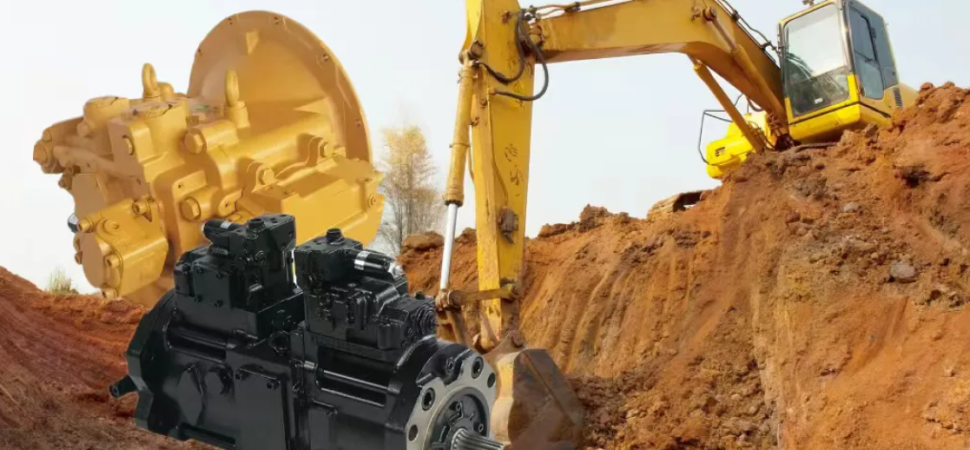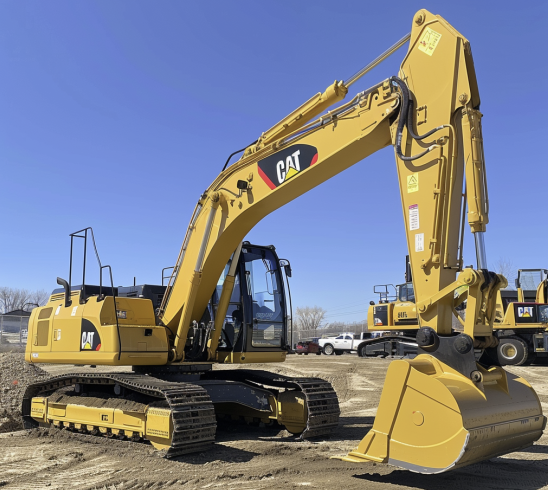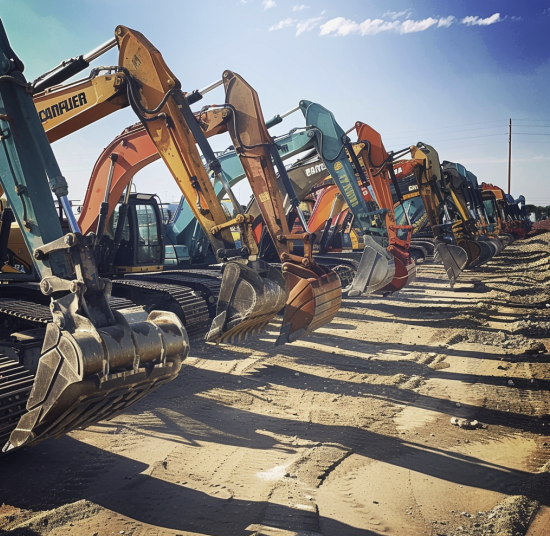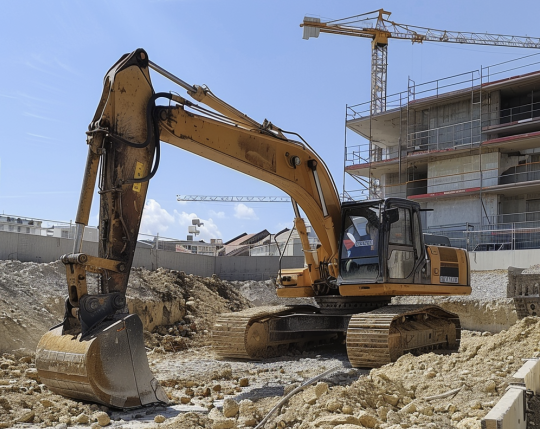Hydraulic pumps are vital components in excavators, powering the machinery by converting mechanical power into hydraulic energy. They facilitate crucial functions like lifting, digging, and dumping, underscoring their significance in operational efficiency. However, when purchasing used excavators, one major concern is the potential failure of hydraulic pumps. The reliability of these pumps diminishes over time, especially in second-hand equipment where wear and tear are more pronounced. Repairing or replacing a hydraulic pump can be prohibitively expensive, not to mention the downtime incurred during repairs, which can significantly impact project timelines and profitability.
Main Causes of Hydraulic Pump Failure
Hydraulic pumps are critical components in various industrial and construction machinery, such as excavators. Understanding the main causes of hydraulic pump failure can help in maintaining the equipment’s longevity and performance. Below are some of the primary reasons hydraulic pumps fail and how to prevent these issues.
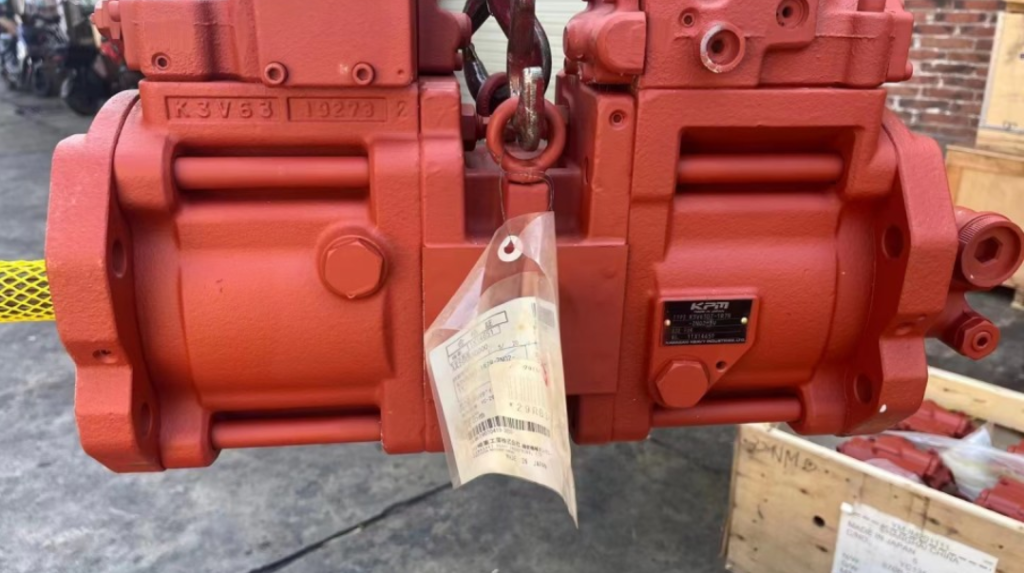
Contaminated Hydraulic Fluid
One of the most common causes of hydraulic pump failure is contaminated hydraulic fluid. The role of clean hydraulic fluid cannot be overstated in preventing wear and tear on the pump and its components. Contaminants such as dirt, water, and air can enter the hydraulic system and cause significant damage.
Dirt: Dirt particles can cause abrasive wear on the hydraulic pump’s internal surfaces, leading to scratches and increased friction. This wear and tear can significantly reduce the pump’s efficiency and lifespan.
Water: Water contamination can cause rust and corrosion, damaging the pump’s metal components. It can also degrade the hydraulic fluid’s lubricating properties, leading to increased friction and wear.
Air: Air in the hydraulic fluid can lead to cavitation, where vapor bubbles form and collapse within the pump. This process can cause pitting and erosion on the pump’s internal surfaces.
Regularly changing the hydraulic fluid and using high-quality filters can help prevent these contaminants from causing damage. It’s essential to ensure that all seals and gaskets are in good condition to prevent dirt, water, and air from entering the system.
Incorrect Fluid Type
Using the correct type of hydraulic fluid is crucial for the optimal performance of a hydraulic pump. Manufacturers specify the type of hydraulic fluid best suited for their equipment, and using an incorrect fluid can lead to various problems.
Viscosity: Hydraulic fluid viscosity is a critical factor. If the fluid is too thick (high viscosity), it can cause excessive resistance and increased power consumption. If the fluid is too thin (low viscosity), it can lead to inadequate lubrication and increased wear.
Additives: Different hydraulic fluids contain various additives designed to enhance performance. Using a fluid without the necessary additives, or with incompatible additives, can compromise the hydraulic system’s efficiency and durability.
Always use the manufacturer-recommended hydraulic fluid to ensure the hydraulic pump operates under optimal conditions.
Overheating
Overheating is another common cause of hydraulic pump failure. Excessive heat can damage the pump components, leading to reduced performance and eventual failure.
Clogged Filters: When filters become clogged, they restrict fluid flow, causing the pump to work harder and generate more heat. Regularly inspecting and replacing filters can prevent this issue.
Low Fluid Levels: Insufficient hydraulic fluid levels can lead to inadequate cooling and lubrication, causing the pump to overheat. Checking and maintaining proper fluid levels is essential.
Overloading: Overloading the excavator or other hydraulic machinery can cause the pump to operate under excessive pressure, generating heat and accelerating wear. Ensuring that equipment is used within its specified limits can prevent this problem.
Improper Maintenance
Regular maintenance is crucial for the longevity and performance of hydraulic pumps. Neglecting maintenance can lead to various issues that cause pump failure.
Inspections: Regular inspections can help identify potential problems before they lead to pump failure. Checking for fluid leaks, worn seals, and damaged components can prevent minor issues from becoming major problems.
Fluid Levels: Regularly checking and maintaining proper hydraulic fluid levels ensures that the pump operates efficiently and stays adequately lubricated and cooled.
Filter Replacement: Replacing hydraulic filters according to the manufacturer’s recommendations can prevent contaminants from entering the hydraulic system and causing damage.
Leak Checks: Inspecting for leaks and addressing them promptly can prevent fluid loss and contamination, ensuring the hydraulic system operates smoothly.
Following the manufacturer’s maintenance schedule and guidelines can significantly reduce the risk of hydraulic pump failure.
How to Prevent Hydraulic Pump Failure?
Hydraulic pumps are the heart of many heavy machinery operations, including excavators. Preventing hydraulic pump failure is crucial for maintaining efficiency, reducing downtime, and saving on costly repairs. By implementing a few key practices, you can ensure your hydraulic pumps remain in top condition. Here are some actionable tips for preventing hydraulic pump failure.
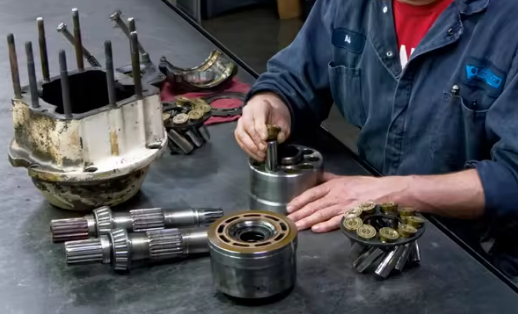
Regular Fluid Maintenance
One of the most critical aspects of maintaining hydraulic pumps is regular fluid maintenance. This includes adhering to a strict schedule for oil changes and filter replacements.
Oil Changes: Hydraulic fluid degrades over time due to heat, pressure, and contamination. Following a regular oil change schedule ensures that the hydraulic system operates with clean and effective fluid. Old, contaminated oil can lead to increased wear and tear on the pump and other hydraulic components.
Filter Replacements: Filters play a crucial role in keeping hydraulic fluid clean by trapping dirt, metal particles, and other contaminants. Over time, filters become clogged and lose their effectiveness. Regular filter replacements prevent these contaminants from circulating through the hydraulic system and causing damage.
Proper Filtration: Proper filtration is essential for maintaining hydraulic fluid cleanliness. High-quality filters should be used to ensure maximum removal of contaminants. Clean hydraulic fluid reduces the risk of wear and tear on pump components, extending the lifespan of the hydraulic system.
Fluid Analysis
Hydraulic fluid analysis is a proactive approach to maintaining hydraulic systems. It involves testing the hydraulic fluid to detect contamination and potential issues early.
Detection of Contaminants: Fluid analysis helps identify the presence of contaminants such as dirt, water, and metal particles. Detecting these contaminants early allows for corrective actions before they cause significant damage to the hydraulic pump.
Identifying Potential Issues: Regular fluid analysis can also reveal potential issues such as fluid degradation, additive depletion, and abnormal wear patterns. This information helps in planning maintenance activities and avoiding unexpected pump failures.
Preventive Maintenance: By incorporating fluid analysis into your maintenance routine, you can adopt a more preventive approach. This proactive measure ensures that the hydraulic system remains in optimal condition, reducing the likelihood of pump failure.
Coolant System Maintenance
A healthy coolant system is vital for preventing overheating in hydraulic pumps. Overheating can cause severe damage to pump components and lead to premature failure.
Role of Coolant System: The coolant system helps dissipate heat generated by the hydraulic system during operation. It maintains a stable operating temperature, ensuring that the hydraulic fluid remains effective and the pump operates efficiently.
Regular Cleaning: Regular cleaning of the coolant system is necessary to prevent the buildup of dirt and debris. Blockages in the coolant system can restrict fluid flow, leading to overheating and increased wear on the hydraulic pump.
Checking Coolant Levels: Maintaining proper coolant levels is essential for effective heat dissipation. Regularly checking and topping up coolant levels ensures that the system can adequately cool the hydraulic fluid, preventing overheating.
Operational Practices
Proper operational practices play a significant role in preventing hydraulic pump failure. How operators handle the machinery can impact the hydraulic system’s health and longevity.
Avoid Overloading: Overloading the excavator or other hydraulic machinery puts excessive strain on the hydraulic pump. This can lead to overheating, increased wear, and eventual pump failure. Operators should adhere to the equipment’s load limits to ensure optimal performance and longevity.
Proper Lifting Techniques: Following proper lifting techniques is crucial for maintaining hydraulic system health. Abrupt or incorrect lifting can cause pressure spikes, leading to damage in the hydraulic pump and other components. Operators should be trained on the correct lifting procedures to minimize stress on the hydraulic system.
Warmup and Cooldown Procedures: Proper warmup and cooldown procedures are essential for hydraulic pump longevity. Before starting heavy operations, allow the hydraulic system to warm up to its optimal operating temperature. Similarly, at the end of operations, allow the system to cool down gradually. These practices help prevent thermal shock and reduce the risk of pump failure.
Conclusion:
To ensure the longevity of hydraulic pumps in excavators, preventing common causes of failure such as contamination, overheating, and internal wear and tear is crucial. Regular maintenance practices like changing hydraulic fluids, maintaining filters, and monitoring operating conditions help mitigate these risks effectively. Using the correct hydraulic oil viscosity and avoiding overloading also play key roles in preventing overheating and reducing wear on pump components. For owners of used excavators, proactive maintenance not only extends the life of hydraulic pumps but also enhances overall equipment performance and reliability.
For more personalized advice on maintaining your excavator’s hydraulic system, contact HOLIGHT Industrial Group today. Our team is dedicated to supporting your equipment needs with expert guidance and reliable service.

